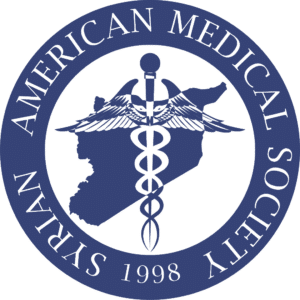In 2015, the UN Security Council passed a resolution that established Syria’s cross-border aid mechanism. Since then, humanitarian assistance and programs have provided a vital lifeline to millions of Syrian civilians affected by the ten-year conflict. The resolution, which must be renewed annually by the Security Council has faced considerable reductions in scope since January 2020, when two of the four original border crossing points authorized by the resolution – one in the northeast and one in the southwest – were cut from the resolution. In July 2020, a third crossing was cut in northwest Syria, leaving the entire burden of the cross-border response in the hands of a single crossing in northwest Syria. Even as access has diminished, needs have grown. The COVID-19 pandemic and associated economic downturn have dramatically worsened the situation, with needs increasing 20% in the past year.
The renewal of the cross-border resolution is more important than ever before to ensure that the needs of the 4 million Syrians trapped in northwest Syria are met in the face of dire circumstances.
There are over 4 million people in northwest Syria, including 2.5 million IDPs, most of whom are women and children. According to the 2021 Humanitarian Needs Overview, 3.3 million people in northwest Syria are classified as in need. While conversations continue about increased cross-line access from GoS-held areas to the northwest, the fact of the matter remains that not a single convoy of humanitarian supplies has been able to cross into northwest Syria from Government of Syria-controlled areas. Northwest Syria remains one of the areas with the greatest needs countrywide; escalation from December 2019 – March 2020 resulted in the largest wave of displacement yet, and as a result, access to shelter, WASH facilities, livelihood opportunities, and other basic necessities is limited. The COVID-19 pandemic further exacerbated and highlighted the severity of the situation. Health facilities, already stretched thin by years of attacks and deprivation, struggled to meet the health needs of the population, while the pandemic’s economic impacts pushed more people into poverty and sparked a rise in malnutrition. Northeast Syria has also struggled this year, with the loss of al-Yarubiyah border crossing impacting the humanitarian response there.
Needs in northeast Syria have grown 38% since the crossing was closed in January 2020.
With northwest Syria only being accessible via cross-border assistance and needs rising sharply in northeast Syria, the renewal of the resolution is absolutely vital. In 2020, UN cross-border assistance from Turkey authorized by the UN Security Council reached unprecedented levels in response to the escalating needs in the northwest. 10,000 trucks carrying life-saving supplies crossed through the last remaining crossing authorized by the UN Security Council, Bab al-Hawa in 2020. Coupled with UN funding of humanitarian programs, this allowed humanitarian actors to reach over 2.4 million people in need each month, including food for 1.7 million people, nutrition assistance for 85,000, and education for 78,000 children. The cross-border mechanism is also critical for the pandemic response, including vaccinations in northwest Syria, where the first shipment of 53,800 vaccines was received on April 22, 2021. The WHO, together with other UN agencies, is the main provider of COVID-19 testing kits and PPE, vaccines, and health supplies. They also lead on preparedness, planning, access negotiation, and technical support to the COVID-19 response. NGOs cannot fill this role.
UN Security Council Members have a moral obligation to uphold their commitments to the protection of civilians in conflict and ensure that millions of Syrians struggling to survive are not denied access to timely, life-saving humanitarian assistance.
The level of the humanitarian crisis demands, at a minimum, the reauthorization of cross-border assistance to northwest Syria via Bab al-Hawa crossing point for 12 months. SAMS also urges Security Council Members to set aside their political differences and adopt a resolution based on humanitarian needs- which would include re-opening the crossings at Bab al-Salam and Al-Yarubiyah. This life-saving humanitarian resolution should be determined based on humanitarian needs, not politics.
